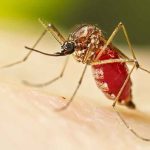Dr. N. Munal Meitei,
Environmentalist, email-nmunall@yahoo.in

There are thousands on galaxies and millions of solar systems and billions of planets in the universe but there is only one Planet, the blue earth which is inhabitable. How long the planet will be livable is depend on how we treat the mother earth.
Last year, 2023 was the hottest year on record, with global temperatures at 1.46°C above pre-industrial levels and 0.13°C higher than the average since 2016, the warmest year on record. The year was marked by six record-breaking months and two record-breaking seasons. But, next year may again break all such records!
What’s more, CO2 level has been so high that it was around 280 ppm for almost 6,000 years of human civilization but it’s above 420 ppm now, more than double before the Industrial Revolution. This is undoubtedly one of the biggest environmental challenges of our time: as greenhouse gas emissions blanket the Earth to trap the sun’s heat, leading to global warming causing many catastrophic events even the rise of 20°C in Antarctica for the first time.
In reality, the organisations like United Nations are not fit to deal with the climate crisis: it was assembled to prevent another world war and is not fit for the purpose. For example, the Paris Agreement, a historic deal on Climate Change to cap the global temperature below 2°C by 2100 and ideally under 1.5°C is just lying on papers without taking up any visible action.
Every hour, forests to the size of 300 football fields are cut down with about 14 billion trees annually. By the year 2030, the planet might have only 10% of its forests; if deforestation isn’t stopped, they could all be gone in less than 100 years.
Air pollution is another striking environmental problem today, killing 7 million people worldwide every year and that 9 out of 10 people breathe air that contains high levels of pollutants. According to a 2023 study, air pollution in South Asia – one of the most polluted areas and region for the longest life – cuts their life expectancy by about 5 years.
The climate crisis is warming the Arctic more than twice as fast as anywhere else on the planet. Sea levels are now raising an average of 3.2 mm per year and it will be about 0.7 m by the end of this century. Last year 60 billion tons of ices from Greenland were lost. If the entire Greenland ice sheet melts, sea level would rise by 6 m. According to 2023 data, Antarctica has lost approximately 7.5 trillion tons of ice since 1997. Sea level rise will give a devastating impact to around 480 million people including Chennai, Kolkata, Bangkok, Ho Chi Minh City, Manila and Dubai among many cities.
A 2020 WWF reported that the population sizes of mammals, fish, birds, reptiles and amphibians have declined up to 68%. More than 500 species of land animals are on brink of extinction and are likely to be lost within 20 years; the same numbers were lost over the last 100 years. Scientists are constantly warning that the planet has crossed a series of tipping points accelerating to sixth mass extinction.
Water is the most precious gift of God, only 3% of the world’s water is freshwater and two-thirds of that is tucked away in frozen glaciers or otherwise unavailable for our use. As a result, many people do not access to palatable water and a half of world population meet water scarcity for at least one month of the year. By 2025, two-thirds of the world’s population may face water shortages.
Food waste is another problem. A third of human food – around 1.3 billion tons – is wasted which is enough to feed 3 billion people. Food waste account for 26% of global greenhouse gas emissions each year; if it was a country, it could be the third-largest emitter behind China and US.
To feed 8.23 billion, agriculture and farming are the leading cause of deforestation. Besides for 25% carbon sequestration, forests help to prevent soil erosion, because the tree roots bind the soil and prevent it from washing away, which also prevents landslides.
The world generates 380 million metric tons of plastic every year and India is the most plastic polluting country. National Geographic found that 91% of all plastic that has ever been made is not recycled. Considering that plastic takes 400-2000 years to decompose, it is irreversible and the most challenging for the environment.
Global temperature rise has not only affected the surface, but causes of ocean acidification. Oceans absorb about 30% of CO2 released in the atmosphere which increases ocean acidity up to 150% causing devastating impacts on coral bleaching and subsequent coral reef loss which produce 50% oxygen on earth. Some scientists estimated coral reefs are at risk and could completely wipe by 2050.
Globally, more than 68 billion tons of top-soil is eroded each year, 100 times faster than it can naturally be replenished. Laden with biocides and fertilizer, the soil ends up in waterways where it contaminates drinking waters. About 40% of the planet’s soil, the skin of earth is degraded.
If we do not change our reckless practices and step up to preserve soil health, food security for billions of people around the world will be irreversibly compromised. It’s estimated 40% of food production will be reduced in next 20 years while the world’s population is projected to reach 9.3 billion people increasing demand up to 50%.
A key contributor to soil erosion is over-tilling: although it increases productivity in the short-term by mixing in surface nutrients, tilling is physically destructive to the soil’s structure and in the long-term leads to soil compaction, loss of fertility and surface crust formation that worsens topsoil erosion.
The fashion and clothing industry accounts for 10% of global carbon emissions. Fashion alone produces more greenhouse than both the aviation and shipping sectors combined and nearly 20% of global wastewater i.e. 93 billion cu m is produced from textile dyeing. Over three billion people around the world rely on fish as their primary source of protein. Of the 18.9 million fishermen in the world, 90% of them fish all season to over-fish the seas.
Therefore, to sustain the earth, a livable planet for all, we must act today; tomorrow may be too late.













